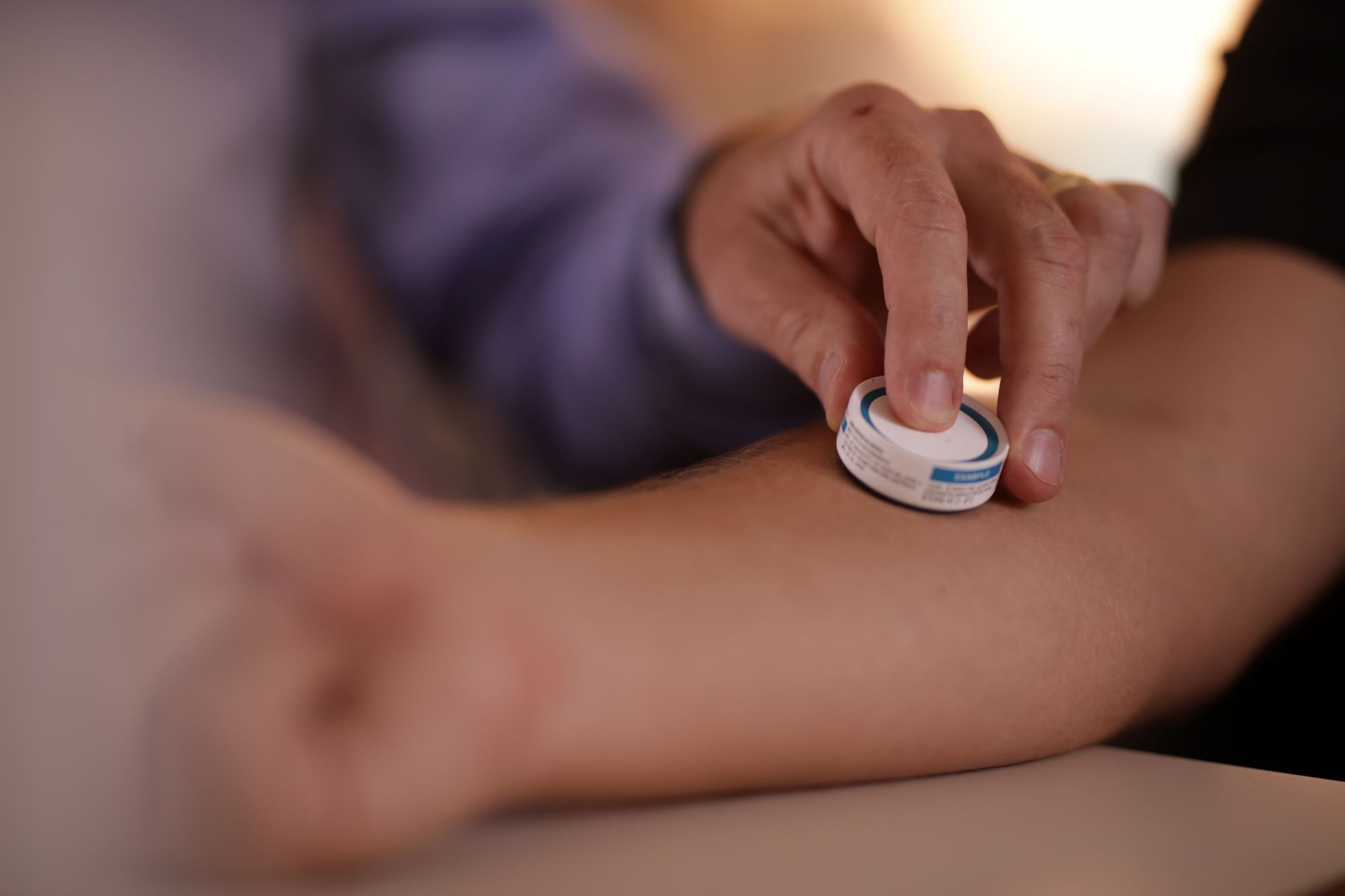
Vaxxas, an Australian clinical-stage biotechnology firm spun out of the University of Queensland, has announced promising results from pre-clinical trials into its novel high-density microarray patch (HD-MAP) for vaccination against Covid-19.
A novel SARS-CoV-2 spike subunit vaccine was dry-coated onto the HD-MAP patch using proprietary systems and technology developed by the company. The patch uses an ultra-high density 9-by-9 mm array of tiny projections that are invisible to the naked human eye to deliver the drug. It comes packaged in a hockey-puck-shaped applicator with a foil seal and is applied to the skin to deliver the vaccine to the abundant immune cells found directly below the skin surface.

Discover B2B Marketing That Performs
Combine business intelligence and editorial excellence to reach engaged professionals across 36 leading media platforms.
The pre-clinical study of Vaxxas’ HD-MAP demonstrated enhancement of immune response compared to vaccination by traditional needle-and-syringe, including significantly enhanced T-cell and spike-specific antibody responses when compared to needle-and-syringe delivery.
Complete protection from Covid-19 by a single dose skin patch delivery using HD-MAP was shown in a lethal virus challenge in a relevant Covid-19 animal model.
The same impressive protection against Covid-19 was not seen with the same vaccine when delivered via injection, even when the spike subunit vaccine formulation included appropriate adjuvants.
Once the vaccine dose was applied on the Vaxxas HD-MAP patch it was shown to be stable for at least 30 days at 25˚C. This means that the patch has the potential for unrefrigerated distribution in the future and potentially self-administration.

US Tariffs are shifting - will you react or anticipate?
Don’t let policy changes catch you off guard. Stay proactive with real-time data and expert analysis.
By GlobalData“We designed this research to address the serious on-going need to improve the global vaccination efforts against Covid-19 and future pandemics. Based on our results, we believe that Vaxxas’ HD-MAP could offer a compelling solution that importantly could use less vaccine and potentially could be readily distributed without refrigeration for self-administration,” said University of Queensland research fellow David A. Muller, the leader of the study.
“This combination could make the HD-MAP extremely well suited to support the massive need for global population vaccination and, indeed, we believe that HD-MAP offers a superior alternative to conventional needle-and-syringe.”
Muller and his team also found that while the SARS-CoV-2 spike subunit vaccine used on the patch was designed based on the molecular spike structure inherent to the Wuhan-Hu-1 reference strain, post-vaccine serum antibody levels “clearly demonstrated the potential to potently neutralize emerging isolates”. This includes those from the UK strain (B.1.1.7) and the South African strain (B.1.351) and potentially others.

Image courtesy of Vaxxas.
“We are extremely excited about these compelling early results showing the potential of Vaxxas’ proprietary HD-MAP vaccination platform to deliver safe and effective vaccines against Covid-19,” said Vaxxas president and CEO David L. Hoey. “We believe that having a single-dose vaccine that could be easily distributed and self-administered would greatly improve global pandemic vaccination capabilities.”
The research underlying the study was co-funded by Vaxxas and the Queensland Government and performed in collaboration with researchers at the University of Queensland and Griffith University.
Vaxxas isn’t the only firm exploring alternative delivery methods for Covid-19 vaccines. Vaccine patches are also being developed by similarly-named Cambridge, Massachusetts biotech Vaxess Technologies and at Swansea University.





